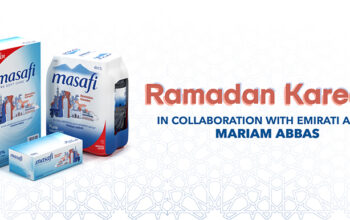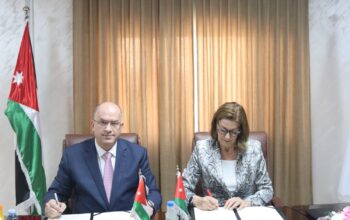Abu Dhabi, United Arab Emirates, September 2022: On August 2nd, 2022, two students from Khalifa University (KU) completed an innovative online internship program coordinated by the Japan International Cooperation Center (JICE) with Ibaraki University’s Kohzuma Biomolecular Science Laboratory.
The eight-week internship started on June 6th, 2022, and focused on topics related to biomolecular science, including neutrons, cancer therapy using proton beams, synchrotron including the sub-units of X-ray absorption spectroscopy and X-ray small angle scattering, as well as comparative study of agriculture in Japan and the UAE.
The participating students were Ms. Aysha AlHashmi, a biomedical engineering student, and Mr. Khalifa Bin Gharib, a student of chemical engineering. Both participated under the supervision of Dr. Takamitsu Kohzuma, Professor of the Kohzuma Biomolecular Science Laboratory at Ibaraki University.
The internship program has been held since 2012 to promote industry-academia collaboration between Japanese companies /organizations and UAE universities, and to date more than 80 students have participated in the program.
Due to the Covid-19 pandemic, the program moved online to accommodate the needs of both students and hosts, and to provide an alternative education stream when in-person internship was not possible. Participation in an eight-week internship is a graduation requirement for the university students, and the flexibility of the host companies and coordination by JICE meant that the students were able to fulfil all requirements through virtual participation.
H.E. Mr. Shihab Ahmed Mohamed Alfaheem, Ambassador of the United Arab Emirates to Japan, commended both host institution and students. “The UAE and Japan celebrate the 50th anniversary of diplomatic relations this year, and it’s wonderful to see the continued collaboration between the two countries with the aim of strengthening connections in fields such as science, technology, culture and education,” he said.
He went on to comment that today, 74 UAE students are studying in Japan, and the UAE government is investing heavily in education, with USD 2,5 billion invested in 2021 alone. He also hopes for more economic cooperation in non-oil areas such as the space industry, based on the success of the Hope Probe mission, and hopes for continued knowledge sharing programs.
Despite being in an online format, the internship was structured to include remote site tours, bringing the learning to life through interactive experiences.
For Aysha AlHashmi, the program gave her a great opportunity to expand her knowledge in her chosen area of study. “We had a great opportunity to learn more about nuclear power, the proton extraction, and how the protons are used in the medical sector to heal cancer patients,” she said. “Moreover, it was a great chance to enhance our knowledge of Japanese culture, too.”
Khalifa Bin Gharib also found the program to be rewarding and fulfilling. “The research under Dr. Kohzuma was very organized,” he said. “Dr. Kohzuma highlighted the importance of agricultural operations and showed us the importance of developing the UAE’s agricultural sector to yield large amounts and good quality produce.”
Dr. Takamitsu Kohzuma also feels that the internship had many positive impacts. “I learned a lot about the UAE from the students. The next 50 years will be based on technology and mutual respect between our two nations, and I look forward to welcoming the students to Japan in January,” he said. Indeed, they are provided with a further opportunity to go to Japan in a one-week follow-up program next year in the hope to deepen their knowledge in research and Japanese culture.
For more information about the Japan International Cooperation Center and further study in Japan please contact the JICE Abu Dhabi office, visit: www.jice.org/en, follow us on Instagram @jice_koho or call: 02 406 9704.








